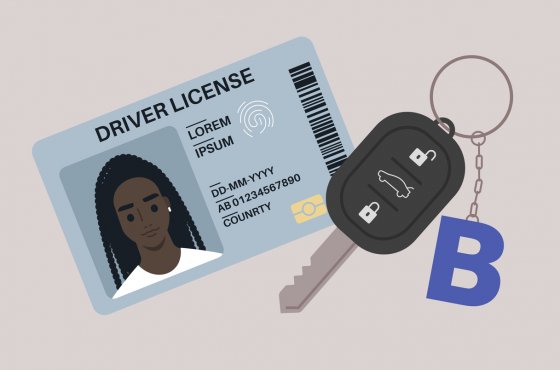The Life and Fight of Martin Luther King
Martin Luther King Jr. dedicated his life to the non-violent struggle for racial equality in the United States. Martin Luther King Day, an American holiday in honor of his heritage, is celebrated on the third Monday of January when citizens voluntarily serve their communities.
Beginning of a journey
King studied in Atlanta at Morehouse College. Here he was convinced that religion is a powerful driving force for social change. He then received his doctorate from the theological faculty of Boston University, after which he returned to the South, in Alabama, where he served as pastor at the Baptist Church on Dexter Avenue in Montgomery.
King was born on January 15 1929 in a family representing the dynasty of Baptist priests, and grew up in Atlanta at a time when the laws of Jim Crow turned black segregation and discrimination in the South into everyday reality.
King’s birthplace in Atlanta is currently registered in the US National Park Service registry as national history monument.
Civil Rights Fight in 1950
He was greatly influenced by the teachings of Mahatma Gandhi, and in 1959, he visited India.
During the 1960s, he was arrested for taking part in non-violent protests in Alabama, Florida and Georgia. In the 1963 year, while in custody after one of these arrests, King published a “Letter from the Birmingham City Prison” on the moral foundations of the civil rights movement.
In August of that year, in front of more than 200 of thousands of people who gathered at the National Mall in Washington, he delivered his famous speech “I have a dream”. As one of the pastors of the Baptist church of Ebenezer in Atlanta, in which his father also served, King, with his eloquence, called for an end to segregation and legal inequality.
7 Day March 1965 is notorious for Bloody Sunday, as marchers were beaten by state patrol officers and civilians on Edmund Pettis Bridge in Selma, Alabama. They were forced to turn back by force, but this severe test prompted King to call for another, longer, 87-kilometer march of Selma-Montgomery.
Success of the civil rights movement
In 1964, President Lyndon Johnson signed the Civil Rights Act, which banned discrimination in employment, in public places and in other aspects of life. King took part in the ceremony of signing the law and its entry into force (in the photo). He continued to insist on adopting a law that would guarantee that black Americans cannot be denied voting rights through discriminatory practices, such as literacy tests, and in 1965, President Johnson signed the Voting Rights Act. In 1964, King received the Nobel Peace Prize.
After the murder
4 April 1968, King was killed on the balcony of his hotel room in Memphis, Tennessee. At the funeral, thousands of mourners walked through Atlanta behind a mule drawn by a gig carrying a coffin with its body.
In a posthumously published essay entitled “A Testament of Hope,” King called for African Americans to remain committed to non-violent action, but warned that “justice for black Americans cannot be achieved without radical changes in the structure of our society.”
King’s Legacy: Nonviolent Protest
In a radio address that King made in 1959, during a visit to India, he said: “Today we no longer have a choice between violence and non-violence; it is either non-violence or non-existence. ” The inspirational beginning of his philosophy was the non-violent actions of Gandhi, aimed at ending the British rule in India. In turn, King inspired people in other countries for social change through non-violent methods of struggle, from members of the Solidarity movement who opposed the Soviet occupation of Poland to Nelson Mandela, who spoke in favor of ending apartheid in South Africa.
King’s Legacy: Fighting Prejudice
During the March on Washington 1963, King stated that people should be judged not by “color of their skin, but by their inner content.” King Center in Atlanta, it is a living memory of how he imagined a free, equal and full of possibilities world in which there was no place for racism and any forms of discrimination.
King's Legacy: A Pursuit of Social Justice
Martin Luther King Institute for Research and Education at Stanford University, implements the project “Documents King”. Within its framework, a complete collection of all speeches of King, his correspondence and other written sources. The institute is a member of the Liberation Initiatives curriculum and the Gandhi-King Community organization, which embody the idea of uniting social activists around the world who defend human rights.
King’s Legacy: Serving Others
Keeping the dream
Read also on ForumDaily:
Washington creates a fund to protect immigrants from deportation
Los Angeles creates a fund to protect immigrants from deportation
“City of Refuge” will lose billions of dollars for refusing to deport illegal immigrants
Protecting the rights of immigrants in New York: how to help
Americans ask Trump to deport their former beloved illegal immigrants
How do immigrants protect themselves in case of domestic violence
Lawyers recommend that children of illegal immigrants refrain from traveling abroad
Mass deportations negatively affect the US housing market
30 reasons for the surprise of the immigrant
Subscribe to ForumDaily on Google NewsDo you want more important and interesting news about life in the USA and immigration to America? — support us donate! Also subscribe to our page Facebook. Select the “Priority in display” option and read us first. Also, don't forget to subscribe to our РєР ° РЅР ° Р »РІ Telegram and Instagram- there is a lot of interesting things there. And join thousands of readers ForumDaily New York — there you will find a lot of interesting and positive information about life in the metropolis.















